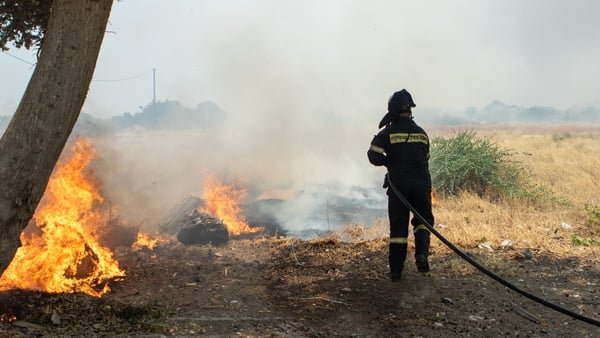The World Meteorological Organization has warned that extreme heat conditions are taking an increasing toll on human health and health systems.
It also warns of greater impacts where there are ageing populations, urbanisation, urban heat island effects, and health inequities.
In a new report - WMO Statement on the State of the Global Climate in 2018 - it said the number of people over the age of 65 exposed to heat waves last year was 220 million above the long-term average, the highest ever.
It also said that global hunger is on the rise again after a decade of steady decline, and that the impact of climate change is to blame.
Read More:
Greta Thunberg sails in for climate summit
UN chief says humanity's 'war against nature' must stop
EU declares climate emergency ahead of summit
Speaking at the COP25 Climate Change talks in Madrid, WMO Secretary-General Petteri Taalas said that if urgent climate action is not taken, the planet is heading for a temperature increase of more than 3C by the end of the century, with ever more harmful impacts on human health and well-being.
He said heatwaves that used to be once-in-a-century events are becoming more regular occurrences, while more erratic rainfall patterns will pose considerable food security challenges for vulnerable countries in the future.
We need your consent to load this rte-player contentWe use rte-player to manage extra content that can set cookies on your device and collect data about your activity. Please review their details and accept them to load the content.Manage Preferences
The United Nations specialised meteorological agency also said that during the first six months of this year a total of seven million people were displaced by climate disasters, such as Cyclone Idai in southeast Africa, Cyclone Fani in Asia, Hurricane Dorian in the Caribbean, as well as flooding in Iran, the Philippines and Ethiopia.
It said the number of climate related displacements could triple to 22 million people by the end of this year.
The report said 2019 concludes a decade of exceptional global heat, retreating ice and record sea levels and that greenhouse gases from human activities have been the driver.
It concluded that average temperatures for the past five and ten-year periods are almost certain to be the highest on record and that 2019 is on course to be the second or third warmest year ever recorded.
Among many other climate observations about 2019 the WMO provisional statement on the State of the Global Climate notes the following:
- The global average temperature is about 1.1C above the pre-industrial period
- Carbon dioxide in the atmosphere is at a record level (407.8 parts per million) and still rising
- Ocean heat is at record levels
- Sea water is 26% more acidic than at the start of the industrial era
- Daily Arctic sea-ice in September was the second lowest in satellite records
- Antarctica ice also saw record lows in recent months
- The net ice loss from the Greenland Ice Sheet in the year to August was 26% higher than the recent average
- The 12-month rainfall over the contiguous United States in the year to June was the highest on record
- Two major heatwaves occurred in Europe in late June and late July, with temperatures above 40C in Germany, Belgium, the Netherlands and Luxembourg, and hitting a record 46C in France
- The Northern Hemisphere experienced 66 tropical cyclones so far this year, compared with an historical average of 56.






